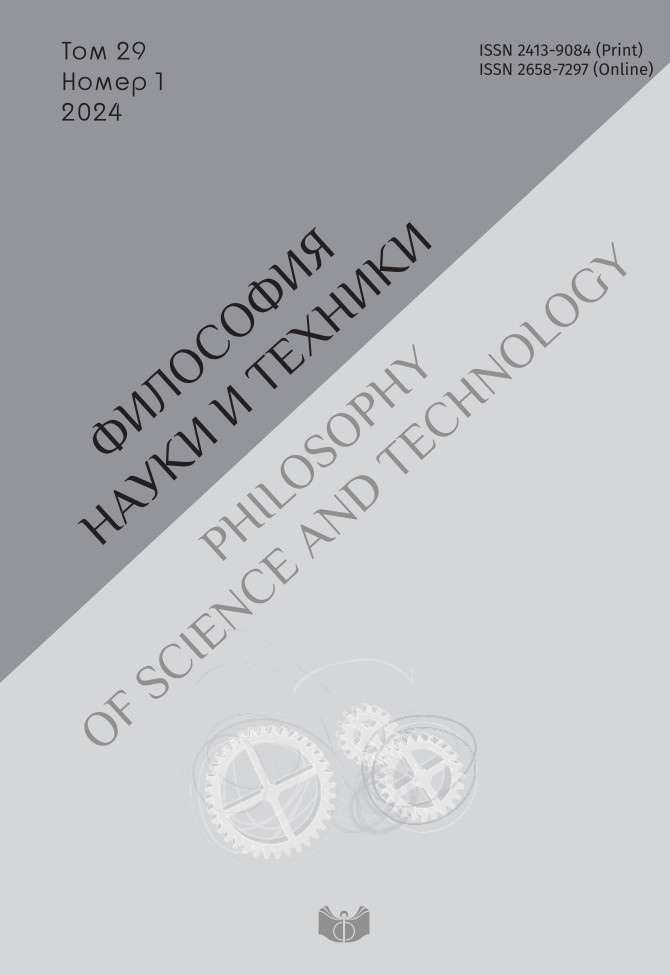Brain-Computer Interfaces (BCI) and Brain-to-Brain Interface (BBI) in the structure of NBIC-technologies (based on experimental data from the Research Center of Neurotechnologies, South Federal University)
DOI:
https://doi.org/10.21146/2413-9084-2024-29-1-34-47Keywords:
converging technologies, brain-computer interfaces (BCI), brain-to-brain interfaces (BMI), biohybrid systems, digital intelligence, NBIC-technologies, artificial general intelligence, hybrid intelligence, body-oriented approach, cognitive processesAbstract
The article presents a conceptual analysis of the main directions and methods of studying the human psyche, consciousness and brain in contemporary domestic and foreign research.
The concept of “converging technologies” is considered in context of the creation of Artificial General Intelligence (AGI). It describes programs for the neuroscientific study of organization of psychic processes in the field of visualization of brain processes and the mapping method, which helps to understand how different parts of the brain can be structurally and functionally separated from each other. The publication pays special attention to understanding the possible use of Brain-Computer Interfaces (BCI) and Brain-to-Brain Interfaces (BMI) in the creation of AGI, “hybrid intelligence”. Brain interfaces are presented as fundamentally new channels of communication and control. An example of a biohybrid odor recognition system developed at the Research Center of Neurotechnology of the Southern Federal University is given. We are talking about the implementation of control through the BMI and mental commands of a biological object – a rat. From the position of a body-oriented approach this work reveals the problem of co-evolution of the body, consciousness, technology and social environment in the post-non-classical paradigm. It is concluded that modern neuroscience has a significant impact on understanding the functioning of the human brain, consciousness and cognitive processes. The feasibility of studying the possible use of BCI and BMI technologies in stimulating brain areas to create sensations equivalent to touch, etc. is noted. We are also talking about the use of biohybrid systems controlled through BMI technology as systems that combine the advantages of natural and artificial intelligence (with further elaboration of ethical issues).











